- What Makes Biodegradable Bags Eco-friendly?
- 1. Superbio Biodegradable Tall Kitchen Bags
- 2. Best Paper: Lowe’s 30-gallon Paper Bags
- 3. Holy Scrap! Biodegradable Bags
- 4. Hippo Sak Plant-based Kitchen Bags with Handles
- 5. UNNI 100% Compostable Kitchen Food Scrap Bags
- 6. ECO SOUL’s 4-gallon compostable trash bags
- 7. EcoSafe-6400 Bags
- 8. HoldOn 13 Gallon Biodegradable Garbage Bags
- FAQs
Plastic bags may seem convenient for your trash, but their environmental impact is severe. According to UNEP data, over 5 trillion plastic bags are used yearly, most of which end up in landfills after just one use. As they slowly degrade, they leach toxins that pollute the environment. Worse, these bags can linger in oceans, forests, and waterways for centuries.
The good news is that there are viable alternatives. For waste like fruit peels, vegetable scraps, and other kitchen remnants, biodegradable garbage bags are becoming a more eco-friendly option. These plant-based bags will safely biodegrade in industrial facilities in a few months.
In this article, we’ve rounded up the top 8 compostable garbage bags perfect for your kitchen’s food waste and compost needs. We’ll save you hours of research by revealing the most eco-friendly and effective products for your lifestyle and budget.
What Makes Biodegradable Bags Eco-friendly?
As the name suggests, biodegradable bags are made from materials that can break down and decompose over time in the natural environment. There are a few key factors that make these bags a greener choice:
- Biodegradation
Biodegradable bags break down faster through microbial digestion. Starch-polymer blends used in most biodegradable bags can decompose in 6 months to 2 years, compared to the 200-5000 year timespan of conventional polyethylene plastic bags in landfills. This faster breakdown helps reduce waste accumulation.
- Renewable Materials
Many biodegradable bags use plant-based renewable resources as raw materials instead of finite fossil fuel derivatives. For example, starch from corn, potatoes, or wheat can be used along with cellulose fiber and non-GMO oils. Using renewable crops as feedstock has much less environmental impact.
- Reduced Plastic Pollution
Plastic pollution poses massive environmental threats on land and in the ocean. Approximately 80% of marine litter is plastic. With over 5 trillion plastic bags used annually, these microplastics accumulate at catastrophic rates. Widespread adoption of biodegradable bags could dramatically reduce plastics in oceans
1. Superbio Biodegradable Tall Kitchen Bags

Established in 2009 by two polymer scientists, Superbio, a New Jersey-based company, provides a sustainable solution for kitchen waste through their tall compostable liners
These 13-gallon bags are specially engineered to biodegrade within 180 days in home piles, earning them coveted BPI and TUV certifications. So you can feel confident tossing them straight into backyard composting.
Designed for convenience, the bags also feature reinforced star-sealed bottoms to securely contain heavy scraps. The handle-tie closure cinches messes in, while a tailored fit suits most indoor bins.
Yet the bags still maintain durability for 3 days of maximum waste containment before composting. Their plant-based construction resists leaks, tears, and abrasion from typical kitchen debris. However, for hefty loads, you may need to double bag.
2. Best Paper: Lowe’s 30-gallon Paper Bags

While not suitable for most indoor waste, paper bags provide a biodegradable solution for yard work and gardening needs.
Unlike plastic, paper decomposes naturally without releasing harmful greenhouse gases. These 30-gallon capacity bags have a double-ply construction and, thus, can resist tearing better than standard paper when loading heavy debris. The flat bottom also makes them easier to fill while standing upright. No more chasing scattered piles of leaves!
However, paper bags still have limitations. Wet grass and other damp waste can cause rapid structural failure. Stick to leaves, trimmings, and dry materials only.
3. Holy Scrap! Biodegradable Bags
Holy Scrap’s compostable liners let you take out the trash without taking down the planet. At just 2.6 gallons, their slim dimensions perfectly fit countertop compost collectors to the inch.
These plastic-free bags are crafted entirely from plant starches to nourish soil, not clog landfills. Their sturdy 0.71mm thickness also resists rips and leaks when handling everyday waste. No more durability-conscience tradeoffs!
Holy Scrap goes beyond just appearance to deliver authentic eco-credentials. OK Compost Home certification verifies full biodegradation in backyard composters within 90 days max.
Ditch the toxic chemicals along with the plastic – Holy Scrap bags contain no GMOs, additives, or scary synthetics. Just carbon dioxide and biomass remain when they quickly break down.
4. Hippo Sak Plant-based Kitchen Bags with Handles

For quality, sustainable waste sorting on a budget, Hippo Sak rises to the occasion. Their 13-gallon kitchen liners backup eco claims through ethical production, from plant materials to renewable manufacturing.
These BPI-certified liners are crafted using bio-based compounds, corn starch, and other biopolymers designed to decompose fully. Hippo Sak also utilizes renewable energy and actively offsets CO2 emissions in their facilities.
Beyond responsible sourcing, Hippo Sak bags perform fantastically as kitchen trash liners. Their standard 13-gallon size fits most indoor bins, supported by thick, durable walls resilient to rips, leaks, and overloading. Convenient built-in handles streamline cinched tying and tossing too.
Offered at just $27 for 90 bags, Hippo Sak liners provide affordable daily convenience without costing the earth long term. Landfills reap no plastic piles thanks to their rapid industrial composability.
5. UNNI 100% Compostable Kitchen Food Scrap Bags

As the #1 rated compostable bag tailored for kitchen food waste, UNNI’s 13-gallon tall kitchen liners strike the perfect balance of responsibility and convenience.
These BPI-certified polyethylene-free bags are engineered from plant-based cornstarch and PLA blends optimized for wet biowaste. The generous 13-gallon volume handles days’ worth of vegetable peelings, meat scraps, and other compost-bound leftovers.
Yet UNNI’s 0.85 mil thick construction ensures reliable strength and integrity when hauling each loaded batch to your curbside pickup or backyard pile. Their signature durability combats leaks drips, or tears even when holding heavy organic waste.
UNNI guarantees efficient biodegradation within one year in actively managed composters too. So food-soiled bags safely nourish nutrient-rich soil, completing the circle from leftovers to new growth. Still curious, here is a comprehensive review of the UNNI brand.
6. ECO SOUL’s 4-gallon compostable trash bags

Meet ECO SOUL’s 4-gallon compostable trash bags. These slim countertop can-fitting liners are crafted using 100% plant polymers – no plastic, BPA, or toxic chemicals in sight.
But ECO SOUL bags don’t skimp on durability just because they’re kinder to landscapes someday. Their 0.8 mil thickness empowers remarkable leak and tear resistance when hauling scraps to your municipal compost pickup. Sturdy walls, easy conscience!
And you can trust that eco-promise too, thanks to rigorous TÜV Austria and BPI certifications verifying backyard and industrial biodegrading superpowers. Within months, all that’s left of your loaded bags are nutrients, water, and CO2 to feed the circle of life.
For home and office collectors wanting the 1-2 punch of daily dependability today and responsible decomposing tomorrow, ECO SOUL bags embrace the task with plant-powered potential.
7. EcoSafe-6400 Bags

The EcoSafe-6400 bags feature compostable biopolymers (PBAT and PLA) in their construction. Made in the USA, these bags meet the ASTM D6400 standard for compostability, with certification from both BPI and CMA.
Each bag measures 16×17 inches wide and has an approximate 2.5-gallon capacity. This makes them a suitable size for most kitchen compost pails. After use, the bags can be tipped directly into an organic municipal composting bin, knowing the entire bag, ties, and all will decompose, leaving no plastic waste behind.
8. HoldOn 13 Gallon Biodegradable Garbage Bags

The HoldOn 13 Gallon Compostable Trash Bags are an eco-friendly option for household waste. These large 24” x 27” bags are made from plant-based materials like PBAT, PLA, and cornstarch to break down without producing toxic microplastics. They meet industrial composting standards for home use too.
The triple-ply construction is leak and tear-resistant while the drawstring grips secure the bags in place. The bags work for trash, recycling, and compost. Their flexibility and secure handles make carrying loaded bags easy.
Users should store bags in a cool, dry area and drain excess liquid before adding wet waste to maintain strength. Taking out the trash every 2-3 days also optimizes freshness and durability.
FAQs
1. How long does it take for biodegradable garbage bags to decompose?
The biodegradation timeline for biodegradable bags varies based on environmental conditions. In actively managed industrial composters, certified biodegradable bags can fully break down into organic matter within 90-180 days. In waterways or oceans, specialized “aqua-biodegradable” bags degrade in months.
2. What are biodegradable garbage bags made out of?
Most commercially available biodegradable trash bags utilize plant-based materials like corn, sugarcane, and cellulose fibers rather than plastic polymers. Common biodegradable compounds are PLA (made from corn starch), PBAT (derived from plants), PBS (sourced from sugarcane), or blends of these along with vegetable oils or biomass.
3. What’s the difference between biodegradable and compostable bags?
Biodegradable bags can be broken down by microorganisms but may leave toxic residues or take a long time. Compostable bags can be broken down by biological processes into natural elements, but they need specific conditions. Compostable bags are better for the environment than biodegradable bags


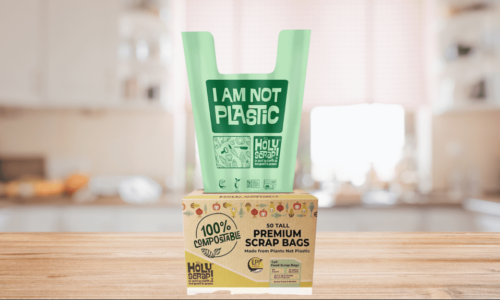
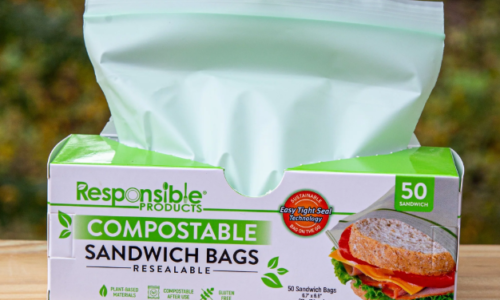
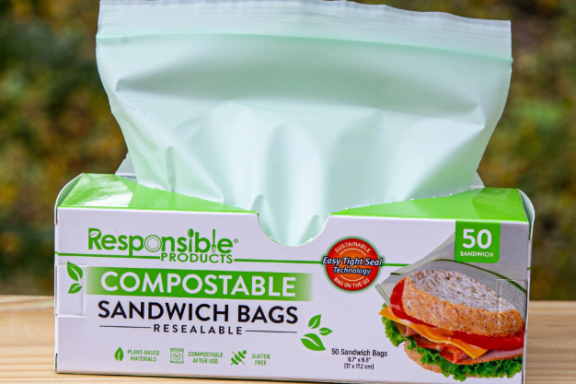
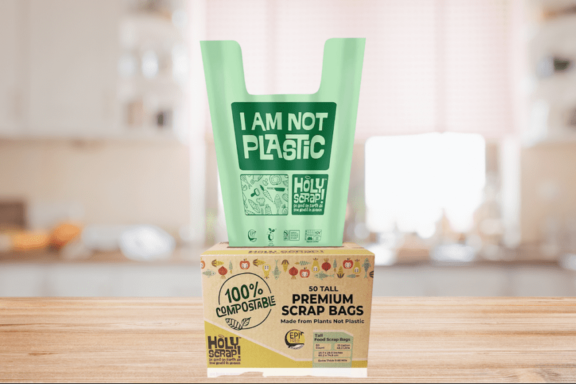


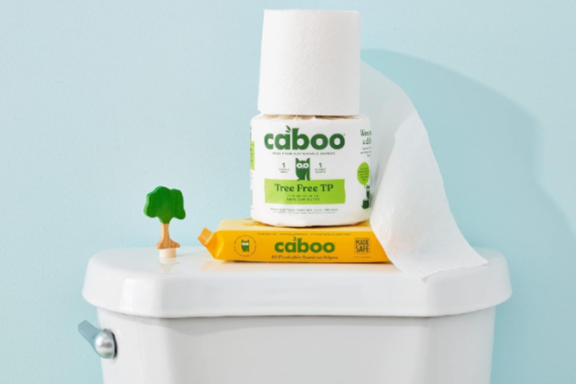



No Comments